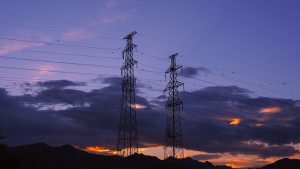
Can digitisation make a difference?
Other industries have had their digital moments, but the digitisation of the UK energy industry is only at the start of its journey. Can digitisation and data, particularly, be used to reduce electricity prices and increase sustainability? I really think so. Let’s consider just one part of the problem and examine how digitisation and data could be applied to drive efficiencies in the balancing of the National Grid.
The National Grid’s challenge
As most people are aware, the UK’s National Grid is one of the world’s largest utilities focused on the transmission and distribution of electricity and must be balanced to support demand. To put it simply, this means that as consumption fluctuates, there must be enough electricity generated to meet that demand. Otherwise, the lights will quite literally go out.
The implication of operating an ‘always-on’ model requires the National Grid to generate more electricity than is being consumed. Otherwise, someone, somewhere, will have a power failure. However, this overproduction is clearly not good from a sustainability perspective and tackling climate change or from a financial perspective. That’s because if electricity is not consumed, it is effectively wasted.
Electricity can, of course, be stored in a biomass or battery, which is why the National Grid is continuing to invest in this technology. However, it is at a fraction of the scale that will actually be required. As biomass technology is productised, and battery technology continues to improve along with solutions to the associated environmental challenges (with the production, transportation and disposal), these technologies will undoubtedly have a major role to play – but they are not in themselves enough.
To make matters worse, over the next five years, the way every household consumes energy will change drastically. More people will invest in solar panels, and even wind turbines, to generate and store electricity for their homes and also to supply the National Grid. The increased adoption of electric vehicles and increased use of electricity to heat homes will see further unprecedented changes in how we consume and store energy on a national scale. The net effect is that accurately predicting future demand and centralised generation will become almost impossible without digitisation and technology-enabled change.
How will digitisation help?
So, faced with an antiquated approach to balancing the demand and generation of electricity. Combined with the revolutionary changes that we are already witnessing, now is the moment to press the fast-forward button on the Energy Industry’s digital transformation. In the context of this article, we must re-think and increase the use of data and data analytics to predict future demand.
Smart meters will, of course, play a role, but to overcome the challenges, we need to focus on data. Better data, better data models, and improved data analysis will enable better predictions of future demand. Yes, there are challenges to be overcome:
- We need a national solution
- We need to overcome privacy concerns and ensure consumer data is used with consent and that it is protected
- We need to manage generation when generation itself is increasingly variable as it is progressively based on renewables
Are there lessons from abroad?
We should not be afraid to look to other countries that are further ahead in their digitisation journey. In Denmark, Energinet has for several years built and operated a centralised data hub, which has provided a strong foundation for innovation. It is currently supporting Denmark’s continued green transition. To achieve this, the industry and regulator must come together. Perhaps the UK’s Energy Industry can take inspiration from the NHS. Through necessity, digitisation in the NHS progressed rapidly due to Covid-19. More services were quickly made available online, and NHS apps became the most downloaded in Apple’s App Store and Google Play.
I believe that today’s increase in energy prices and the environmental need for the UK to achieve its Net Zero targets by 2030 should create the impetus the industry needs to accelerate action and digitise.


























